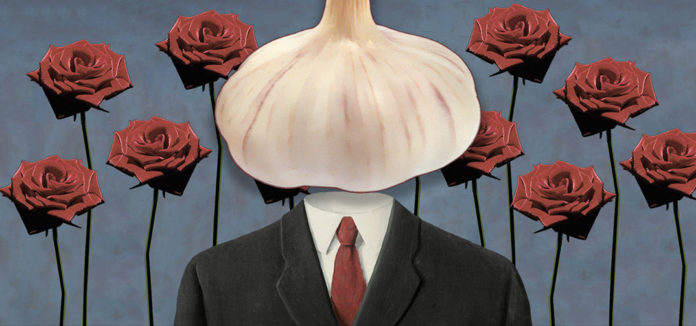7 REASONS YOU NEED MUSIC
Mrs. S couldn’t talk, but she sure could sing. I met her when I was an intern in the neurology department. She had suffered a stroke which destroyed critical pathways on the left side of the brain – the part that controls speech. And yet, while the stroke had left her speechless, it didn’t stop her from belting out “Happy Birthday.”
This was not news to neurologists, though. For over a century, this phenomenon has been observed in stroke patients with left-side brain damage. What is newer is the finding that “singing therapy” can help some of these patients learn to speak again.
In addition to helping stroke victims, the health benefits of listening to music abound:
Music is Powerful
When we listen to our favorite songs, dopamine is released by two distinct areas of the brain—one involved with intense pleasure and the other involved with anticipation. This combination may explain why we love music so much.
Music is Social
“When people get together and hear the same music—such as in a concert hall—it tends to make their brains synch up in rhythmic ways, inducing a shared emotional experience,” reported music psychologist Ed Large after studying the effects of musical rhythms on participants.
Music Helps Prevent the Flu
Listening to soothing music has been shown to increase antibodies important for immunity.
Music Enhances Memory
“If I asked you to tell me a memory from high school, you would be able to tell me a memory,” says Salimpoor. “But, if you listened to a piece of music from high school, you would actually feel the emotions.”
Music is Physical
It enhances a workout and has been shown to increase physical performance.
Music Reduces Stress and Anxiety
One study shows music is even more effective than medication in reducing anxiety in patients before surgery.
Music Makes us Happy
Music improves mood. Even sad music has been shown to help people feel better.
Steven Pinker, Professor of Psychology and author of “How the Mind Works,” captures the essence of music’s effect on our bodies and mind:
“I suspect music is auditory cheesecake, an exquisite confection crafted to tickle the sensitive spots of… our mental faculties.”
I wish you all the best,
Dr. Samantha Boardman
What Is the Sexiest Male Scent?
Studies have proven that we are what we eat. As in, it registers in our smell. And in a recent experiment, men who gobbled down raw garlic or swallowed garlic pills were asked to wear cotton pads under their armpits for 12 hours. These pads were then evaluated (yes, sniffed) by some very committed-to-science women. The women rated the garlic-eaters body odor to be more pleasant, attractive and masculine compared to garlic-free men.
Caveat: The experiment did not explore how the women felt about the garlic-eaters breath.
I wish you all the best,
Dr. Samantha Boardman
The Joy Of Being Wrong
I recently asked a friend who has been married for over 45 years what the secret was to their enduring bond. “It’s simple,” she explained. “Letting go of being right all the time.”
“I thought I had all the answers. I bickered with my husband about the silliest little things, just to prove my point,” she chuckled to herself and shook her head. “One day, my exasperated husband said to me, ‘You are like a dog with a bone. But do you know what happens to the dog when it gets the bone? He buries it. And then he is alone.’”
My friend knew at that point she needed to change. And she did. “And you know what? It was liberating. What a relief it is to let things go and not to have to have the last word. Best of all, when you let go of the need to be right, you listen more and sometimes end up learning something.”
Letting go of the need to be right has benefits beyond personal relationships. I know this first hand. When I finished training to be become a psychiatrist, I confess I was a bit of a know-it-all. Just by seeing how a patient wrote their name (a heart instead of dot above the “i” suggested the patient had a personality disorder; tiny handwriting suggested Parkinson’s disease) or by reading the triage sheet, I could formulate a diagnosis and treatment plan.
I was also convinced I knew how the patient would do over the long term. My favorite line was, “I know the end of this movie.”
A little while ago I bumped into a patient I had met several years ago. Back then, he was a chronic alcoholic and had not been drug- or alcohol-free for more than a few days in over a year. I was convinced there was no hope. When I saw him again, he was a changed man — sober for two years, employed full time and engaged to be married.
“How did you do it?” I asked.
“People change,” he replied with a shrug.
Being wrong never felt so good. When we are so convinced we are right, we fail to see other possibilities or to appreciate endings. As a hedge fund manager explained to me, “There is a thin line between arrogance and confidence…It’s called humility.”
I wish you all the best,
Dr. Samantha Boardman
HOW TO SAVE FACE AFTER A MELTDOWN AT WORK
Have you ever lost it in front of your boss? Or had a meltdown in front of colleagues? Few of us haven’t. Here is some game-changing advice for regaining composure — and respect in the workplace — post showdown: Put a passionate spin on it.
Instead of saying “I was too emotional” to account for your behavior, say, “I was very passionate.” According to a recent study, those who pulled the passion card were perceived to be more competent than the ones who said emotions got in the way. This makes sense, of course, considering how the two words have very different connotations in the professional world.
“Being passionate is often stated as an important attribute for employees; passion is associated with determination, motivation and having a high degree of self-control. Being emotional, however, has almost a negative mirror effect and is associated with irrationality, instability, ineptitude and a low degree of self-control,” explained lead researcher Sunita Sah, Assistant Professor of Management and Organizations at Cornell University.
Men are quick to dismiss a woman as “too emotional” the moment she becomes upset about anything. I know a young woman who was told by her male boss that she was too sensitive. “You need to grow a thicker skin,” he advised her. This was after she had burst into tears when a colleague publicly berated her for missing a deadline that he had pushed back without telling her. She could have subtly changed the narrative if she had switched the post-tears story to a passion play for not missing a deadline and colleagues keeping everyone informed.
These days, that same young lady takes matters into her own hands. Before anyone dares label her as “too emotional” in stressful situations, she declares her passion for her work. She didn’t grow a thicker skin, thank you very much, but she just did get a promotion.
My mission in life is not merely to survive, but to thrive; and to do so with some passion, some compassion, some humor, and some style.
˜ Maya Angelou
I wish you all the best,
Dr. Samantha Boardman







